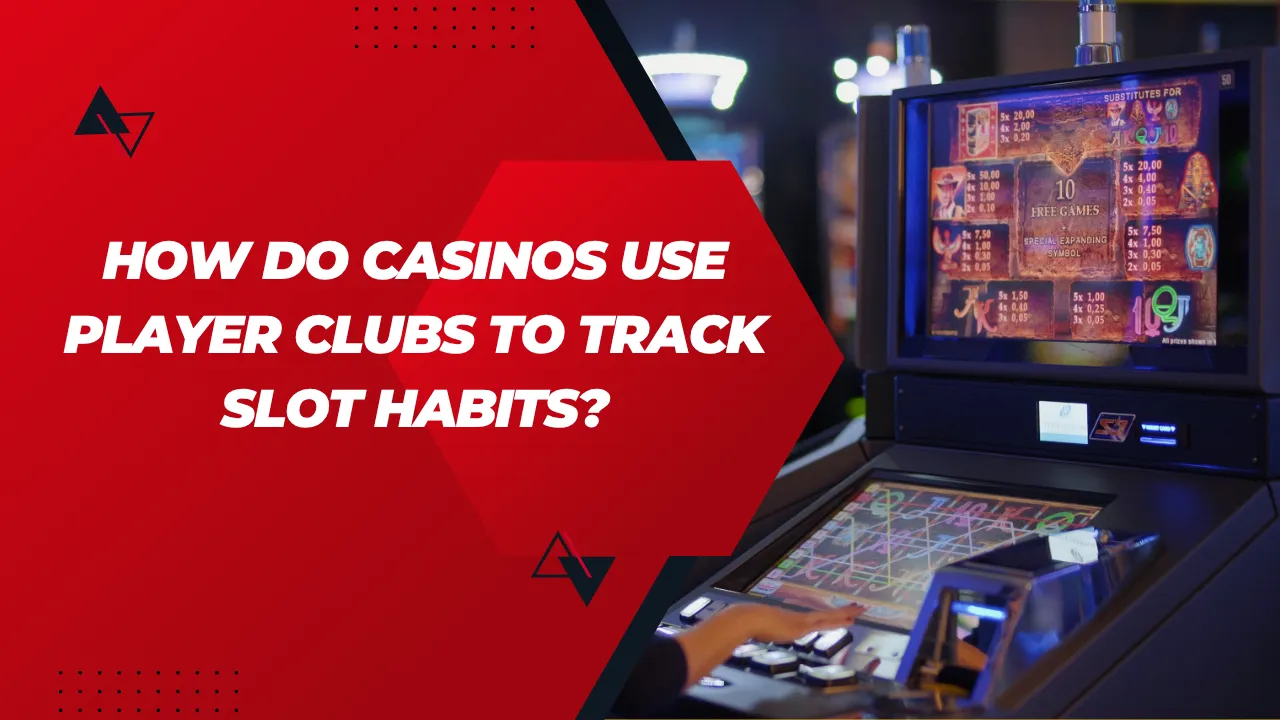Casinos are masters of understanding player behavior. While most visitors may think of the glitzy lights, free drinks, and entertainment when they walk onto the floor, behind the scenes casinos are focused on one thing: data. The primary tool they use to capture and analyze that data is the player club system, often known as a loyalty program. These clubs may look like a simple way to earn free spins, discounted meals, or complimentary stays, but in reality, they are sophisticated systems designed to track every spin, bet, and behavior on the casino floor.
As someone who has researched the industry and spoken with both players and casino staff, it’s clear that player clubs are far more than just marketing perks. They are the backbone of how casinos monitor slot machine activity, predict customer behavior, and design offers to keep people coming back.
The Mechanics of Player Clubs
When a casino guest signs up for a player club, they usually receive a membership card or a digital ID linked to their account. Each time they insert the card into a slot machine or register their play at a table, the casino begins collecting data. This includes not only how much they bet and win, but also how long they play, how often they visit, and which games they prefer.
For online platforms, the system is even more seamless. Accounts are automatically tied to gameplay, making it effortless for casinos to collect insights. Players who already engage with digital gambling — such as those familiar with slot sites uk — often recognize the same structure. Online loyalty programs operate in nearly identical ways, rewarding activity while silently tracking play habits. For both land-based and online casinos, this data collection forms the foundation of personalized rewards and offers.
Why Casinos Value Slot Data So Highly
Slot machines generate the majority of revenue in most casinos, often accounting for 60–80% of gaming income. Because of this, understanding how players interact with slots is crucial. Every spin creates data points that reveal how engaged a player is, whether they are likely to return, and how much they might spend in the future.
Casinos use this information to segment players into categories — casual visitors, high-frequency players, and high-value spenders, for example. These categories allow marketing teams to tailor offers precisely. A casual visitor might get a free buffet coupon to entice them back, while a high-value player could be offered a luxury suite and exclusive tournament access. Without the detailed tracking provided by player clubs, this level of precision would be impossible.
Creating Personalized Rewards
One of the biggest selling points of player clubs is the rewards system. Players accumulate points with every dollar they wager, and those points can be exchanged for free play, food, hotel stays, or even cash back. While this feels like a win for the player, it’s carefully designed to keep them engaged.
Casinos know that if a player is close to reaching a new tier in the loyalty program, they’re more likely to stay longer or visit again soon. The psychology of chasing rewards works in the casino’s favor, ensuring continued play. The data gathered through club cards also means casinos can send highly targeted offers — for example, emailing a player who favors penny slots with a special free spin bonus, or inviting a high-roller to an exclusive event.
Enhancing the Casino’s Marketing Strategy
The information gathered from player clubs doesn’t just benefit the gaming floor. It’s also invaluable for marketing campaigns. Casinos use the data to build detailed customer profiles and predict future spending patterns.
If a casino knows that a certain player visits every Saturday night, it can target promotions specifically for that time slot. If another player prefers video poker to traditional slots, they can be given exclusive promotions for those games. This level of personalization is far more effective than generic advertising, and it keeps customers loyal to one particular casino rather than shopping around.
The Role of Technology in Player Tracking
Modern player club systems go beyond just swipe cards. Many casinos are introducing mobile apps that integrate directly with slot machines, allowing for even more real-time data collection. These apps not only track gameplay but also provide instant access to loyalty points, exclusive promotions, and even mobile wallet features for cashless gaming.
Some casinos are experimenting with facial recognition technology, which could eliminate the need for physical cards entirely. Cameras and AI can identify players as soon as they sit down, linking them to their loyalty accounts automatically. While this raises questions about privacy, it highlights how central tracking has become to the modern gaming experience.
Addressing Concerns About Privacy and Responsible Gaming
One of the criticisms often raised about player clubs is that they feel invasive. After all, the system knows exactly how long you’ve played, how much you’ve won or lost, and even when you tend to take breaks. For many players, this raises concerns about how their data is being used.
Casinos typically reassure customers that the information is used solely to enhance rewards and promotions, but regulators are increasingly monitoring how this data can also be used for responsible gaming initiatives. In fact, some systems are designed to detect problematic play patterns and trigger interventions, such as sending reminders about play limits or offering self-exclusion tools.
The Future of Player Clubs and Slot Tracking
Looking ahead, player clubs will likely become even more sophisticated. With the growth of online casinos and digital payment methods, the integration between land-based and online platforms will continue to expand. A single loyalty account could soon cover both physical casino visits and online gameplay, offering players seamless rewards across both environments.
Blockchain technology may also play a role, creating transparent and tamper-proof records of player activity. This could enhance trust while still giving casinos the detailed insights they need. For players, the benefits will continue to revolve around more personalized rewards, smoother experiences, and possibly even greater control over how their data is used.
Conclusion
Player clubs may seem like a simple perk program, but in reality, they are the engine driving casino marketing, loyalty, and customer engagement. By tracking every spin, every wager, and every visit, casinos gain the insights they need to keep players engaged and coming back. For the player, this means more rewards, more personalized offers, and sometimes a sense of VIP treatment. For the casino, it means higher retention, increased revenue, and a competitive edge.
As technology evolves, the relationship between casinos and players will continue to grow closer. Whether through apps, facial recognition, or blockchain, one thing is certain: player clubs are here to stay, and they will remain a key tool in understanding and shaping slot habits.








